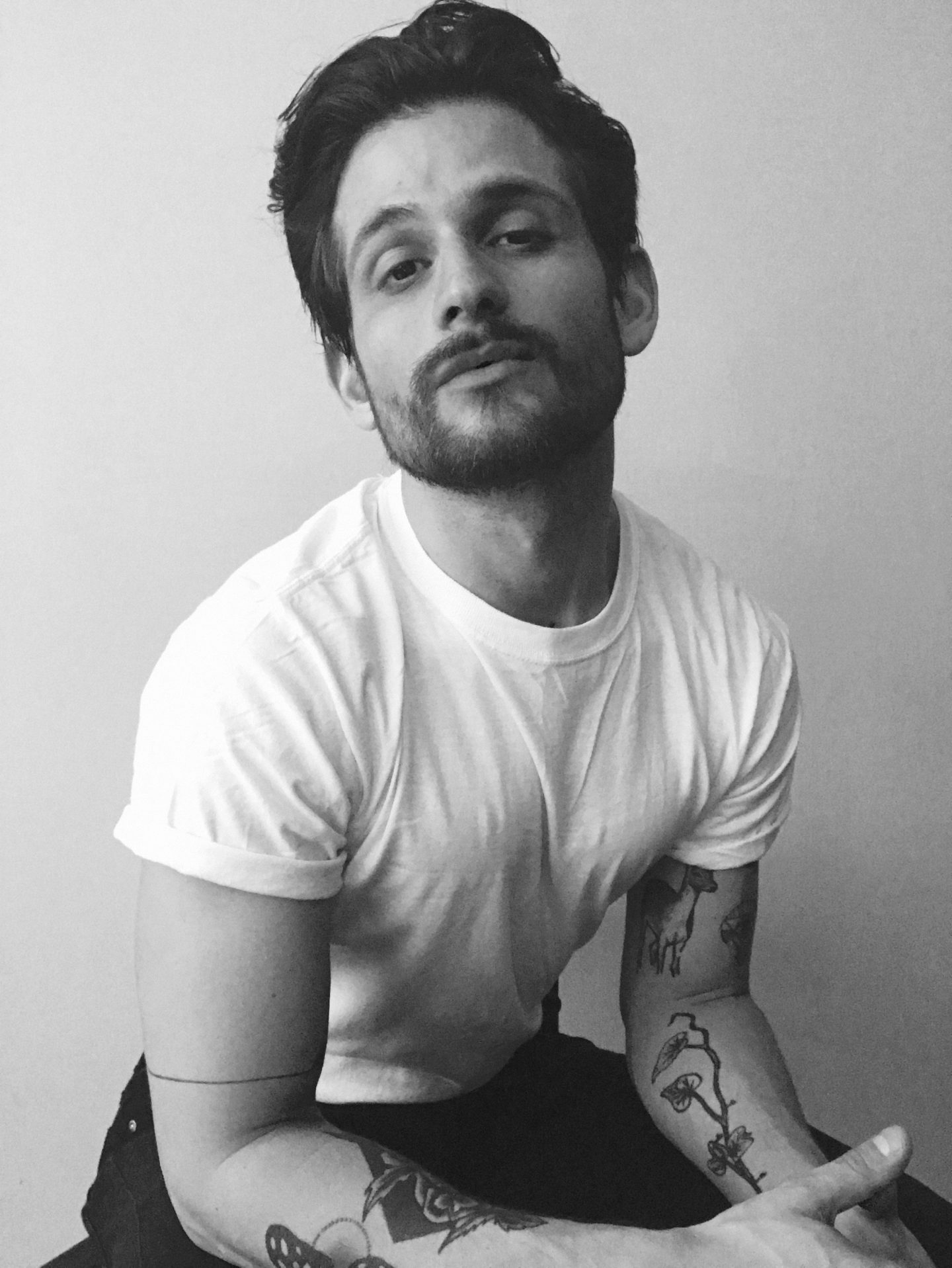
The underground music scene is alive and well in NYC. Many thanks to radically queer jazz song interpreter and activist Richard Cortez. His 5 show weekly residencies are accompanied by his impressive band of accomplished musicians. His shows are hauntingly intimate and raw. Peppered by the blazing sounds of the brass section and Richard’s monologue throughout. I truly fell in love with live jazz music and performance all over again.
His reinterpretation and extensive knowledge of The Great American Songbook is a sheer joy to watch on stage. Cortez breathes new life to these classic songs and makes them all his own.
Next week, Richard and his band will be breaking new ground. Performing at the historic Birdland Theater in NYC. The show entitled “The Richard Cortez Band UNCENSORED UNHINGED RAW & UNINHIBITED” is slated to be his most intimate and electrifying show yet. You can catch Richard and his band for the special performance December 13th at 8:30 PM at Birdland. Tickets are available now at http://richardcortezjazz.com
I recently sat down with Richard to discuss his work, inspiration, and so much more.
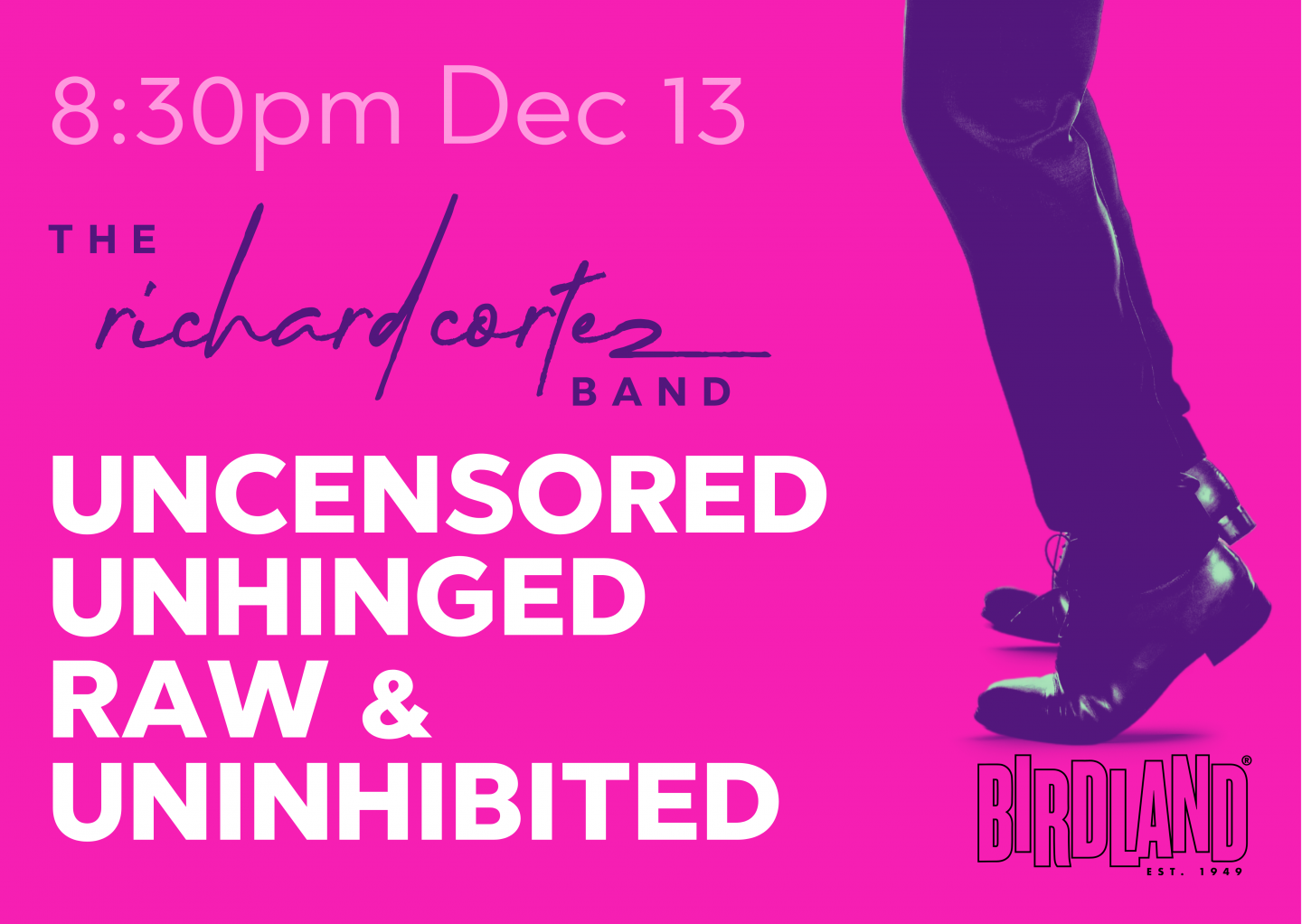
How has your music style changed over the years Richard?
Music was one of my first loves. To this day, sometimes I think it might be my only great love in this lifetime—or at least that’s what I spent most of 2021 telling my therapist. Either way, it’s certainly what I’ve given most of my time and energy to since I was old enough to speak. I spent a great deal of my formative years disappearing into music as a means to escape the immediacy of my feelings or my surroundings—the style was an afterthought.
While he wasn’t the greatest father, when I was a little kid, my Papi shared his deep appreciation for and excitement about music with me through world music and a cornucopia of various other genres, with artists ranging from The Bee Gees to Maria Callas. He had style and never missed a beat—I think the music he listened to had something to do with the charismatic way he moved through life. I longed to manifest a similar eclectic and suave aesthetic in my step.
My father’s taste in music, paired with my adoring grandmother’s love of the Great American Songbook and my eccentric mother’s affinity for Motown and Disco, meant—if nothing else—that I started life off lucky enough to be exposed to various kinds of music and knew early to appreciate both the ache in a Harold Arlen tune and the hot coals that would swell beneath my feet when Salsa music came on.
For me, it always has been—and always will be—about anything sung or played with feeling. Not the genre of a work, but how it moves you.
So, when it comes to style? I don’t know that I’ve ever really had a major change.
My style has always been self expression through music by way of vulnerability and rawness.
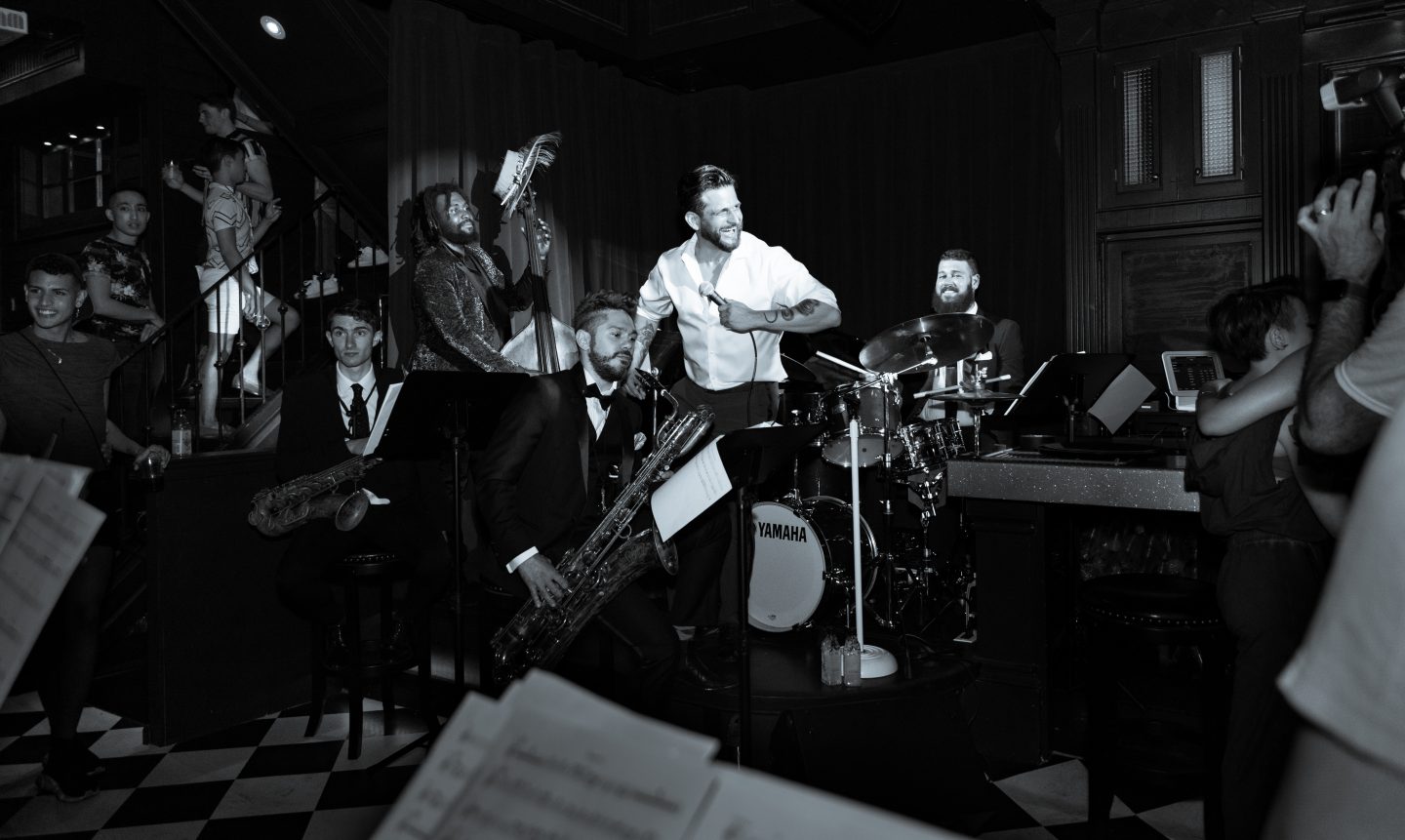
Why jazz?
This work—call it Jazz or BAM (Black American Music) or whatever best suits where the music finds you—came to me at a time in my life when the artist in me was very broken and suffering. After nearly 20 years of writing, performing, and recording my own original queer focused music, something in me shifted. I found myself in this unhealthy relationship with composition. I was maintaining unhappiness to remain inspired. I had become the cliche of the troubling, brooding artist. And it dawned upon me: “Do I need to be unhappy in order to be fruitful? Can I live a happy life and still make meaningful work? Is pain the price you pay in order to be considered a good artist?”
It was around that time I met a jazz guitarist (with the patience of a saint) named Alex Mejia at a 4th of July party in 2018. Until I met Alex, I hadn’t really thought of Jazz as an option for me. While I loved it, it felt so academic and prestigious—talk about intimidating. It’s also such a vast catalog of work with so many subgenres; where does a 30-something singer-songwriter with no real experience being a jazz singer begin?
But before I knew it there were these songs—some I had known since I was a little kid—and they felt familiar, like old recipes in a handwritten cookbook.
Through the sacred text of these songs, I was suddenly able to express myself with the same intensity I had when I was performing my own work, but without the emotional labor of everyone knowing everything about my personal life with lyrics written by me. There was a barrier between the audience and my entirety. I felt like the audience was getting just as much, but I was giving a little less and keeping some of myself for myself. This was rejuvenating and inspiring.
As my interest grew, so did my understanding that these songs have remained very gendered and heteronormative in their performance since their inception. I felt called to try and make Cole Porter and Bessie Smith proud. I wanted to sing this music for all the people who loved it when it was popular and weren’t allowed to be LGBTQIAA-identified out in public. For every man who listened to “Lover Man” secretly in longing. I wanted to play the music so radically and so unmistakably queer that it would somehow heal the silence held in spaces back when when queer people congregated in the shadows, silently as not to be caught. I wanted to take on that shame and turn it into something magnificent and new.
The thing about jazz (at least the way I see it) is that this music was born out of Black healing and survival. If you let it into your heart and respect its origins, I truly believe no matter who you are that Jazz is a healing balm that can mend any brokenness in you that you’re brave enough to face and try to heal. I think Jazz healed the artist in me who was desperately trying to find a way out of pain, and in exchange I’ve given myself completely to it.
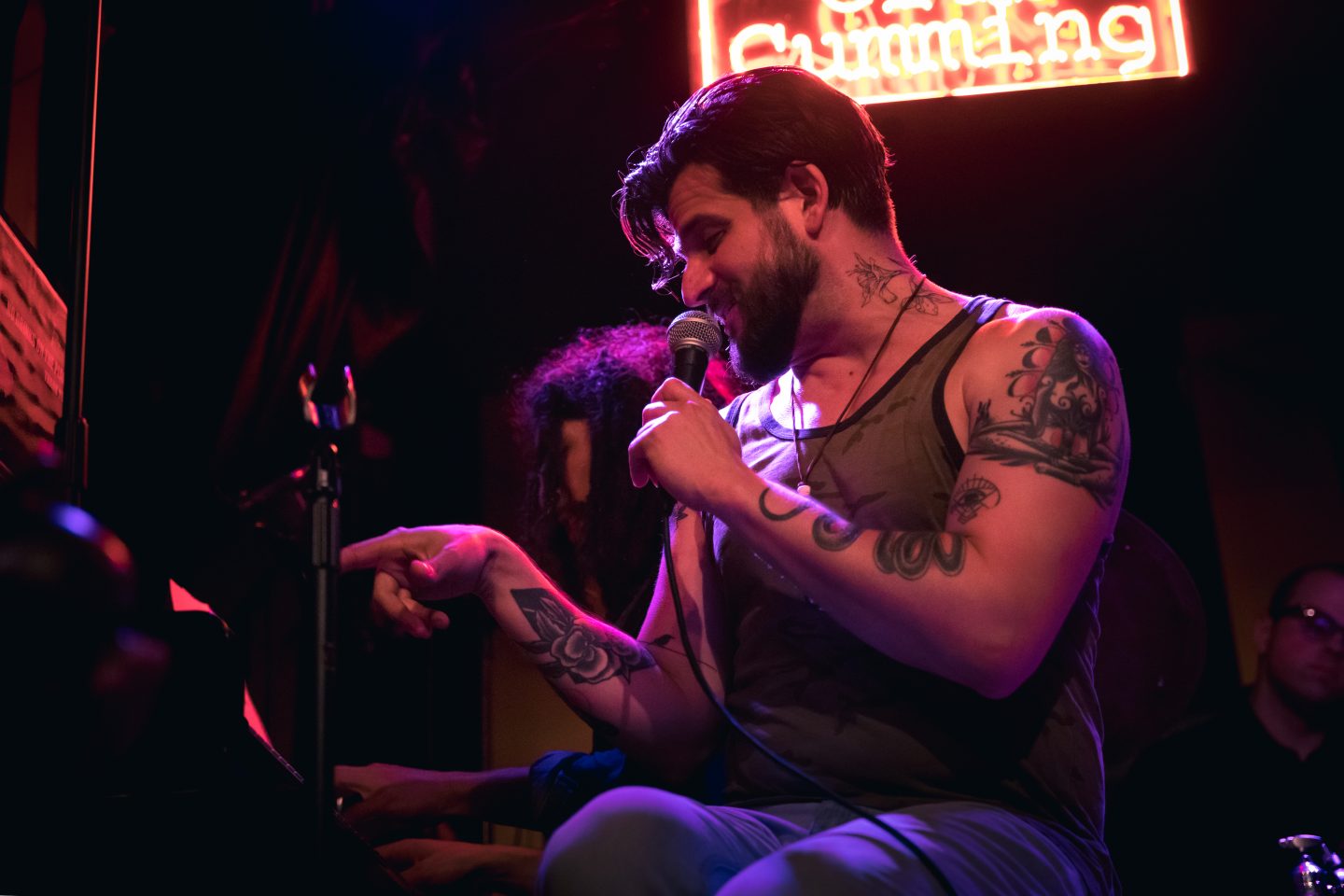
You have truly thrown yourself into the jazz scene in NYC and have introduced your talents to some alternative spaces for your performances. What inspired you to do that?
I sort of touched on this in the last question, but let’s further unpack this and ask this: “Why does live music not exist in gay bars?” I believe this is because of segregation and homophobia.
Homosexuality was considered a mental illness up until 1973, according to the DSM. When queer people congregated, they risked the chance they could be thrown into a psychiatric ward and tortured by way of shock or aversion therapy or—worse—incarceration.
We had to keep it down and meet in secret—that sort of doesn’t leave room for trumpets.
Bridging the gap between the world of live music and gay social spaces has been a really fun experiement of mine. It’s amazing to watch queer people immediately feel uncertain as to why what they’re used to (djs, drag queens, gogo boys, music videos) isn’t taking place in our safe spaces upon their arrive, to only turn around and leave saying things like, “This was nice for a change” or “I didn’t come here expecting this, but now that I’ve experienced it, I’m wondering why this sort of thing doesn’t happen more?”
Conversely, it’s been wonderful to see how much appreciation cis/straight– identified jazz musicians have for a queer audience. Many of the musicians I work with are always a little taken aback by the respect and adoration they receive when performing in queer spaces.
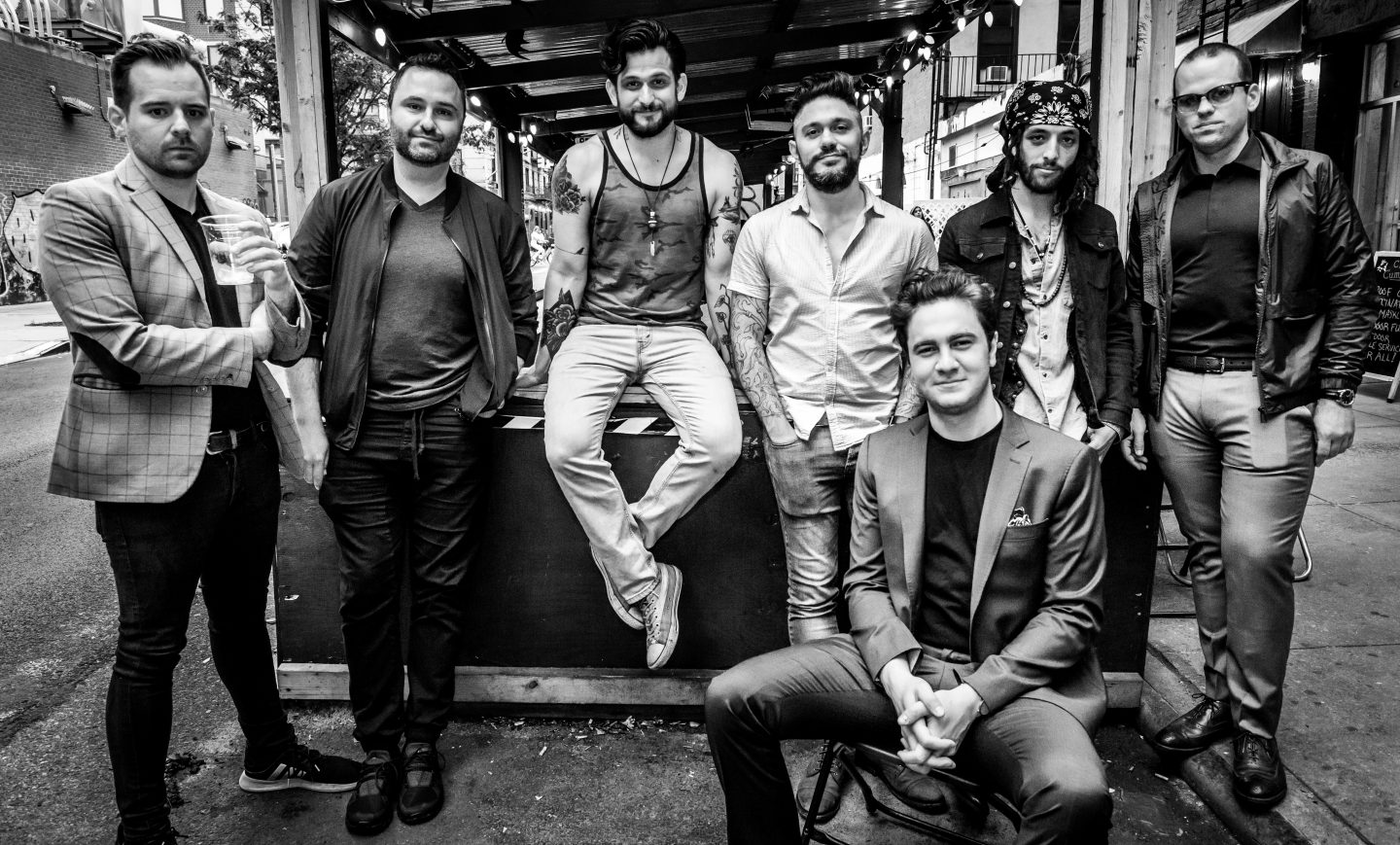
Over the past several years I’ve seen you perform with such talented musicians and singers. For upcoming performers, how can they build a network of their own?
I’ve found that half of the time, it was my own fear that was keeping me from walking amongst the people I looked up to the most when I came into the jazz community. My biggest piece of advice is: shoot for the stars, ask the person you think is going to say no if they’ll play with you—because what’s the worst thing that can happen? They say no? It’s what you were expecting anyway, and, even then, at least they know who you are and may even recommend a great player you didn’t know about. The imposter in us tells us people are thinking about their opinion of what we do way more than they actually do. Most folks are just trying to connect. Don’t be afraid to be open to that connection and collaboration.
Who or what inspires you the most?
The gay men who survived the AIDS crisis taught me how to be a gay man. I didn’t have nearly enough mentors growing up… when I came out, the gay community was still recovering from the blow of loss we experienced in the 80s. The few men who lived to tell the tale in the wake of it all took my hand when I was 13 and showed me the way. They gifted me our culture and passed down the legacy of our people through folklore and niche humor/art. They inspire me the most. I’m just trying to do what they did for me the best way I know how. I only ever hope to make them proud. Both the ones I got to meet and the ones whose spirits runs through me every time I open my heart and sing.
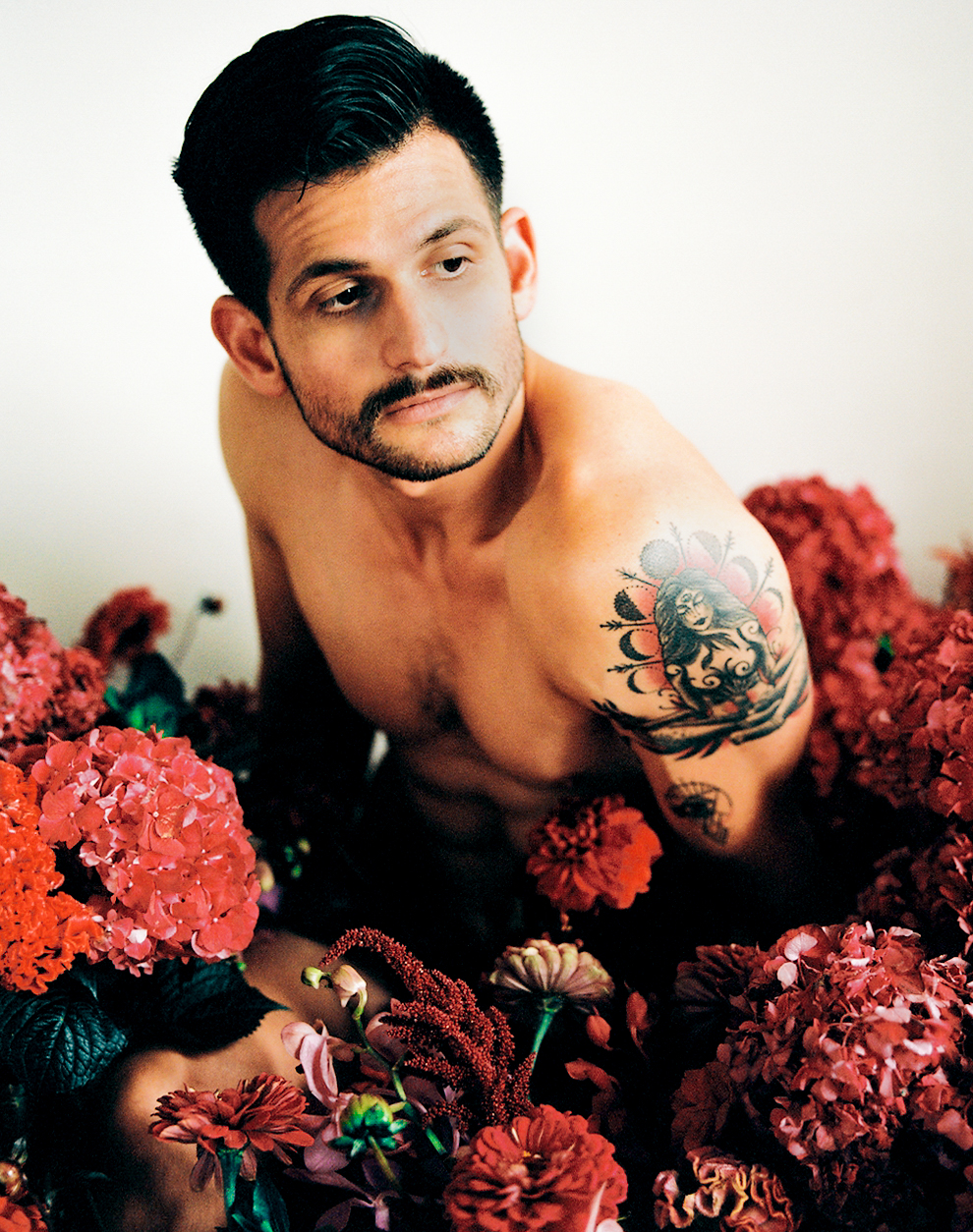
The Great American Songbook is a go-to for many singers and perhaps yourself? Why do you believe that is?
I think there’s a beautiful challenge in saying here is Mona Lisa or Starry Night. Here are some of the most gorgeous paintings ever created. Now, keeping in mind that people will almost always reference the original and judge you based upon it, do your best to give us the Mona Lisa or Starry Night in your OWN way.
What makes your interpretation memorable or moving? What new identity or depth or height are you bringing to the work? What makes your take matter?
7. On December 13th you will be performing at the historic Birdland Theater. How did that come about, and could you tease me about what we can expect during your show?Luckily, I have an amazing group of peers who suggested my name to Gianni Valenti (owner of Birdland) before he and I ever even met. Russell Hall, internationally respected bassist and pirate, I believe, was the person who really sealed the deal for me. He told Gianni I could handle any room, and that I was the real deal. I owe ya, Russell. Skin out.
8. Last, Richard, what do you know for sure?
I know this world is in a whole lot of trouble, that’s for sure, but not all hope is lost. We have to put our phones down and get back to each other. Stop using social media as an echo chamber for self-hatred and comparison and rely only on our own growth or gauge how far we’ve come or how far we still need to go. We need to slow down and return to the earth—be with it’s simple beauty and renew our respect for it. We need to lead with kindness, and let others live their lives free of judgment as long as they aren’t harming others.
I also know, for sure, you can buy tickets to Birdland here: richardcortezjazz.com
- Comedian Matteo Lane– HIS RECIPE FOR SUCCESS - August 3, 2022
- Spencer GarrettThe Winner’s Circle - May 9, 2022
- WINTER 2021 GIFT GUIDE - December 10, 2021
